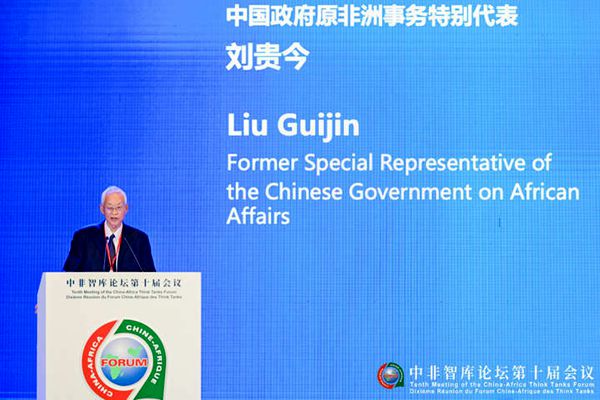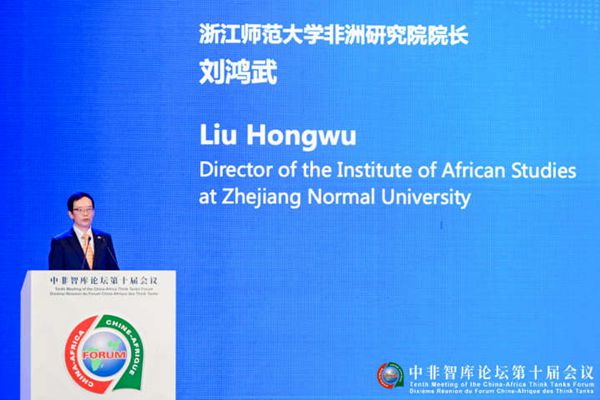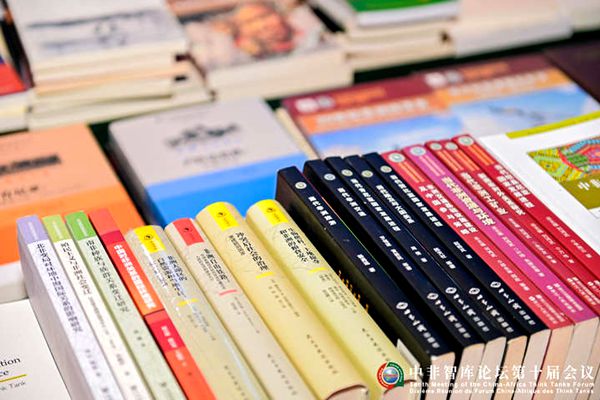The tenth Meeting of the China-Africa Think Tanks Forum opened in Hangzhou – capital of East China's Zhejiang province – on Oct 20.
As a warm-up event for the upcoming Forum on China-Africa Cooperation in Senegal in West Africa, it has attracted more than 200 political, academic and business representatives from China and 15 African countries.

Liu Guijin, former special representative of the Chinese government on Africa affairs, addresses the forum on Oct 20. [Photo/zj.zjol.com.cn]
It reportedly aims to deepen understanding between China and Africa, to boost the comprehensive Sino-African strategic and cooperative partnership and play a role in building an even closer China-Africa community with a shared future.
The meeting lasts for two days and in addition to the opening ceremony, there will be the first plenary session, three forums, a second plenary session and the closing ceremony.

Liu Hongwu, director of the Institute of African Studies at Zhejiang Normal University, makes a speech at the tenth Meeting of the China-Africa Think Tanks Forum. [Photo/zj.zjol.com.cn]
During the conference, the organizer is also holding an exhibition featuring Zhejiang Normal University's achievements in African studies and a photo exhibition of foreign affairs, in commemoration of the 100th anniversary of the founding of the Communist Party of China.
Zhejiang Normal University's latest academic achievements in African studies are reportedly being exhibited for the first time at the event, which is being welcomed by visitors.

Books go on display at an exhibition featuring Zhejiang Normal University's achievements in African studies. [Photo/zj.zjol.com.cn]
"The publication of these achievements is of strategic significance for promoting and deepening China-Africa relations," said forum participant and former South African diplomat, Gert Grobler.
Liu Hongwu, the initiator of China-Africa Think Tanks Forum, who is also director of the Institute of African Studies at Zhejiang Normal University, said that since Chinese academic results were increasingly coming to the fore on the world stage, the institute would actively promote the translation of original academic achievements and international communications work.